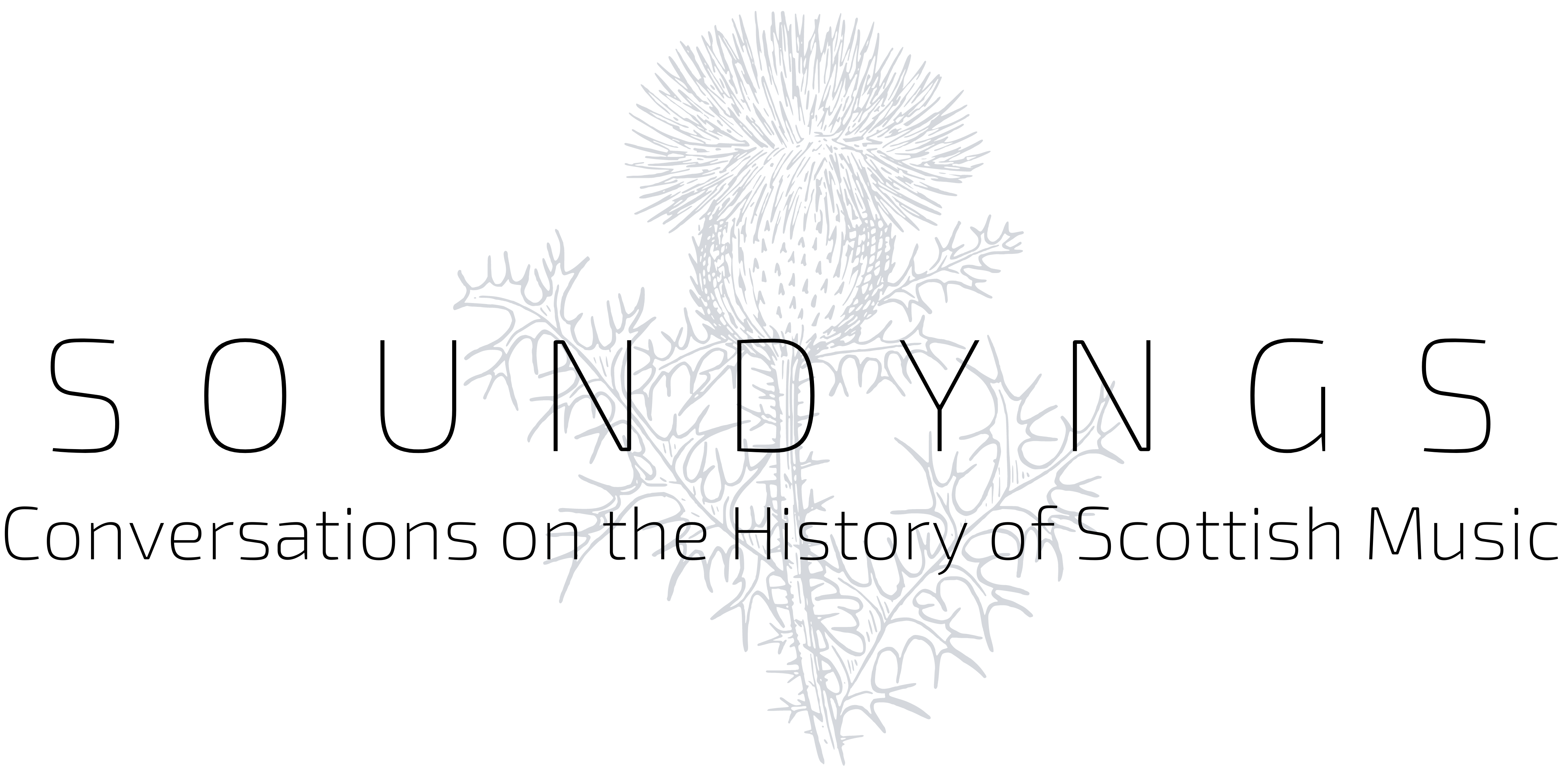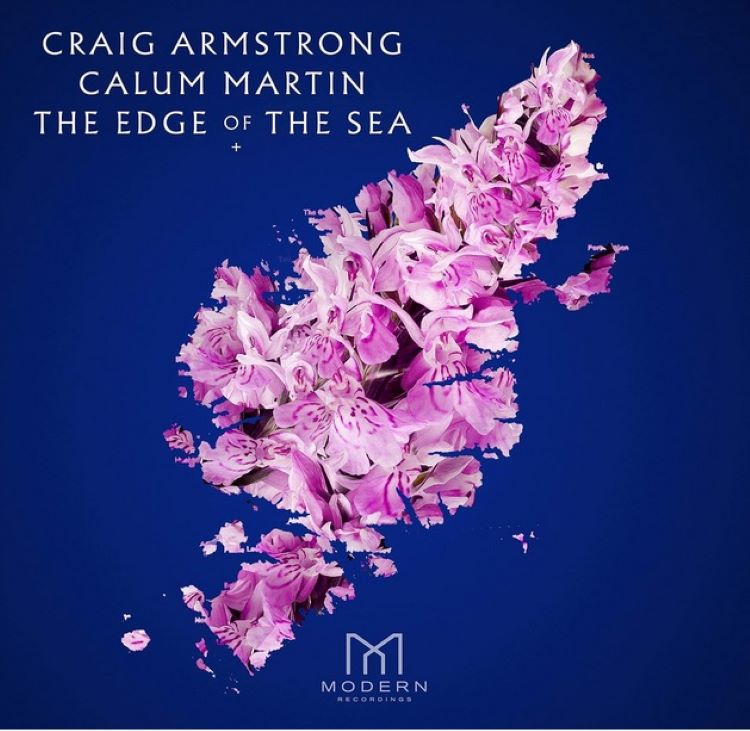The Edge of the Sea by Craig Armstrong and Calum Martin. Featuring the Scottish Ensemble and Duncan Chisholm, and psalm singers from the Isle of Lewis, with funding from the National Lottery through Creative Scotland, and the PRS Foundation’s Open Fund for Music Creation (BMG, 2020)
Soundyngs doesn’t often review new music albums because, well, they aren’t quite history … yet … but this one swam into the nets because of references found in recent reading about research on Gaelic spirituality. It’s interesting because the project is a thoughtful intervention intended to keep live a unique tradition of spiritual singing, highlighting a tradition of singing, and blending this with new composition.
The Scottish Reformation quickly introduced new psalm books with metrical translations in English (1564) but it took almost a century (1659) for the metrical psalter to be fully translated into Gaelic. Indeed, 16th century lowland Scots had dismissed Gaelic as a sign of incivility, which no doubt rather inhibited translation. However, from the point that Gaelic psalm singing was fully enabled, a unique style of singing developed that combined the new tunes with a melismatic, ornamental style that was unique to those familiar with Gaelic song traditions. Over time, as the mainland Church of Scotland re-introduced organs and accompanied singing, the Free Church in the western isles held on to a style of unaccompanied psalmody that permitted greater levels of improvised expressiveness than mainland four-square accompanied approaches.
This album, combining the wonderful Scottish Ensemble string players with traditional and church musicians, contains two new compositions that aim to combine the heartfelt expressiveness of traditional Gaelic psalmody with the richness of contemporary music, using layered, slow-shifting harmonic minimalism in the instruments that don’t inhibit the freedom of the human voice.
Calum Martin is a singer/songwriter who lives and works on the Isle of Lewis – see also his recording label Leum Music. He is also an elder in the Free Church at Back, Lewis – so unaccompanied psalm singing in worship is his more usual mode of engagement with this material. Behind this project lie some historically important recordings that Martin helped to make of the congregation of Back Free Church in Lewis singing unaccompanied psalms, in Gaelic, led in the traditional manner by a precenter who ‘lined out’ the psalm, followed by the congregation responding. Youtubes of these recordings still demonstrate how psalms work in this worship context. Martin’s “Leum Music” Youtube channel, inter alia, contains some examples. The recordings in 2003 helped to raise money for a local hospice, and a recent reissue from Arclight promises to continue to donate a “portion of the profits” to this cause.
Craig Armstrong, the second composer, was born in Glasgow and today is famous for composing film scores across many genres – from Baz Lurhmann’s Romeo and Juliet and Moulin Rouge! to pastoral tales such as Far from the Madding Crowd and Snowden. It is these latter two films, with their modal, melodic scores sitting over brooding drones, that feed into The Edge of the Sea. Armstrong’s interest in psalms was rooted in childhood exposure, inter alia, to church singing in his mother’s family’s church at Hilton, Easter Ross. His meeting up with Martin was fortuitous.
The album contains two substantial collaborative compositions. The 11 movements that comprise ‘Ballantyne’, based on an original melody by Martin, were commissioned by the Lewis Arts Centre (An Lanntair) for performance in August 2016, and are discussed in the CD notes as an elegy to Martin’s father. The first performance at An Lanntair juxtaposed the new work with unaccompanied psalm singing. Words (in Gaelic) are from Psalm 68, and engage with the post-Easter resurrection story from Acts 1:6-11 (“Thou hast, O Lord, most glorious, ascended up on high”). Musicians on this track include Neil Johnstone (cello), Duncan Chisholm (fiddle) and psalm singers in including Isobel Ann Martin (Calum’s daughter) and the Reverends Calum Iain Macleod and Iain D Campbell.
The second work on the album, ‘Martyrdom’, was composed some years earlier, in 2014. It is a theme and variations using a psalm tune from the 18th century that is still in common use today, and was commissioned by drinks company Diageo to be performed at Edinburgh Castle during the 2014 Ryder cup. The opening, played by solo violin over a shimmering cello drone, has a distinct sense of bagpipe piobaireachd – also a tradition that uses a theme (urlar, or ground) followed by elaborating variations. Words are from psalm 57: “Be merciful to me, O God”. Subsequent variations involve both men and women in the role of precentor.
The album was recorded in Dundee’s Caird Hall in 2018. Dundee had a 16th century reputation as a centre for out-of-church spiritual singing (the Gude and Godlie Ballatis) and it’s a nice turn of the circle to find this worship material reconceived so beautifully for out-of-church recreational listening.
Further Reading
Some contemporary reviews of the composition which include interviews with the composers (accessed 5th April 2024) include:
- An Lanntair note of original event (27 August 2016)
- Anon, ‘Film Composer speaks of ‘beauty’ of Gaelic psalm singing’, in The Stornoway Gazette (26th August 2016)
- Katie Laing, ‘How Hollywood came to the Ballantyne Psalm Singing Project’, in her online blog Hebrides Writer (August, 2016)
- Jude Rogers, ‘A Vertical Connection to God’: the euphoria of Gaelic psalm singing’, review in The Guardian (27 August 2020)
Further Listening
- Craig Armstrong’s homepage
- Calum Martin, Leum Music
- Leum Music’s Youtube channel with Back Free Church singing psalms https://www.youtube.com/@LeumMusic and
- ‘Gaelic Psalms at Back Free Church’ (Green M, 2003) on Youtube
- Craig Armstrong and Calum Martin, The Edge of the Sea, with the Scottish Ensemble (BMG Rights Management, 2020), on Spotify
- ‘Martyrdom’, original tune, to Psalm 57 – original tune and psalm, track 4 in the album Hebridean Choir – Salm Vol.1: Psalms from the Hebrides of Scotland (Ridge Records, Catalogue B0002LUAFW, 2003) – on Spotify;
- and, for those wanting to own the vinyl, Volume 1 and Volume 2 (reissue, 2020) are now available in vinyl from Arclight Editions

